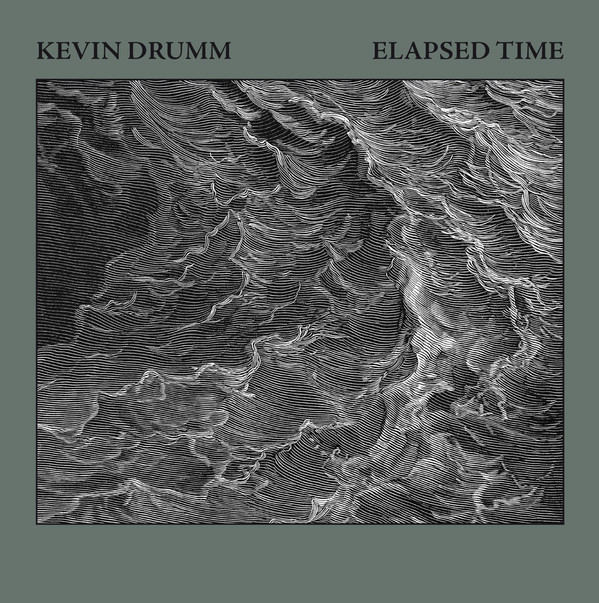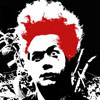- Administrator
- Albums and Singles

Artist: Merzbow
Title: Graft
Catalogue No: CSR129LP
Barcode: 8 2356649002 9
Format: LP on lime green vinyl in 'bootleg' style sleeve / with bonus 7"
Genre: Japanese Noise
Shipping: 22nd February
Pre-Order LP & 7"
MERZBOW returns to COLD SPRING in blistering form - a sizzling new album length VINYL only limited edition (lime green, ltd x 400 copies) presented in an old-school 'bootleg' style cover and sealed with a sticker. LP regular edition is available only through Cargo Distribution
The special extra limited edition version of the LP comes with bonus 7" (ltd x 150 copies) of exclusive tracks and is only available from COLD SPRING MAIL ORDER. This title will be deleted upon selling out, and the tracks are never to be issued on CD! A one time opportunity to own a true MERZBOW collectors piece! ACT FAST! LP with LTD 7" is available ONLY through Cold Spring Mailorder
Tracks: A1. graft#1 | B1. graft#2
\n
Read More
- Administrator
- Albums and Singles

Artist: Skitliv
Title: Bloodletting
Catalogue No: CSR115P
Barcode: 8 2356649862 9
Format: 10" Picture Disc in stickered PVC sleeve
Genre: Doom / Experimental
Shipping: 22nd February
Pre-Order 10"
Limited edition Picture disc from SKITLIV, the project of former MAYHEM front man MANIAC.
With a line up that includes SHINING’s NIKLAS KVARFORTH, SKITLIV is a disturbed, and disturbing, blackened doom journey through the mind of this legendary Black Metal vocalist who was one of the original exponents of the genre, and is one of its most recognisable figures.
This picture disc is made extra special not only by the inclusion of “Who Will Deliver Us From Gold and Planets” by CURRENT 93 - an introductory collage destruct that was created at the request of Maniac and is dedicated to him, but also because the artwork that is used for the side containing this track is part of one of Tibet’s own paintings.
Ltd x 777 copies. No repress.
Tracks: A1. Current 93 - 'Who Will Deliver us From Gold & Planets?' | A2. Slow Pain Coming (Cold Spring Mix) | B1. A Valley Below (Demo Version)
\n
Read More
- Administrator
- Albums and Singles

Artist: Sehnsucht
Title: Wüste
Catalogue No: CSR124CD
Barcode: 8 2356648992 4
Format: CD in 6-panel digipak
Genre: Experimental / Metal / Acoustic
Shipping: 22nd February
Pre-Order CD
BRAND NEW BAND FROM FORMER MAYHEM FRONTMAN FEATURING MEMBERS OF GALLHAMMER, SKITLIV AND NURSE WITH WOUND
Former MAYHEM front man MANIAC, whose band SKITLIV has proved to be a surprising departure from the Black Metal genre for which he was best known for over 20 years, has formed a side-project with fiancé Vivian Slaughter, bass player/vocalist with the Japanese all-girl band GALLHAMMER, SKITLIV's guitarist Ingvar Magnusson and experimentalist Andrew Liles (NURSE WITH WOUND). Unlike SKITLIV, which is a noise/doom amalgam, with Maniacs vocals still firmly rooted in Black Metal, SEHNSUCHT is in the noise / darkwave / ambient genre, with any vestiges of Black Metal pared away.
Tracks: 1. Sult | 2. Cunt Queen | 3. South Of Cincinnati | 4. Wüste | 5. Tarn Of Guilt | 6. Good Morning Great Moloch | 7. Stadt Der Engerl Der Vernichtung | 8. Tokyo Daymare | 9. Hanging In English Garden | 10. Ten
\n
Read More
- Administrator
- Albums and Singles

Artist: Wicked King Wicker
Title: God Is Busy... Save Yourself
Catalogue No: CSR125CD
Barcode: 8 2356648952 8
Format: CD in jewelcase
Genre: Doom Metal / Harsh Noise
Shipping: Now
Buy CD | Download Album
Wicked King Wicker is pure doom. Their brand of guttural expression strips away the rock n roll base and leaves nothing for the listener than the caustic reality of the darkest side of life. It is heavy, barbaric and void of hope. Wicked King Wicker has taken the power of doom metal and added noise to mix to make its point - a point that While their style is not for everyone, the number of people being turned on by their nihilism is growing fast. There are lots of labels that can apply to their music, and other bands with a similar approach to theirs, but the bottom line is Wicked King Wicker is unique, and their extreme doom stands alone as the heaviest, most brutal doom imaginable and it may take you places you don’t want to go.
“God Is Busy… Save Yourself” is WKW's 6th album, and their first released outside of the U.S.
WKW has been celebrated by loyal listeners around the world, as well as in the mainstream music press such as Terrorizer magazine, which gave the band’s first two albums 8.5 ratings.
Tracks: 1. Those Who Bear Responsibility (16:21) | 2. Call My Name Sweet Demon, So I Know I Am Not Alone (18:23) | 3. So Easily Lead Astray (18:12)
\
Read More
- Administrator
- Albums and Singles

Artist: Iron Fist Of The Sun
Title: Behavioural Decline
Catalogue No: CSR114CD
Barcode: 8 2356648962 7
Format: CD in jewelcase
Genre: Power Electronics / Black Noise
Shipping: Now
Buy CD | Download Album
Personal obsessions skewed by drug use, codes of behaviour observed by a misanthropic mind. Bitter and cold. Nihilistic and scornful. Elitist and Pure. Behavioural Decline documents the rise of treachery and the fall of honour. Power electronics that sonically takes inspiration from electro-acoustics and ideology akin to black metal / black noise. 'Concert For Evening Battle' was recorded live at Radio Black Forest's festival of electro-acoustic music 22/8/2009, Birmingham, England. A deeply personal Recording.
Tracks: 1. Introduction To A Joyless New Start | 2. First Movement Of A Shallow Man | 3. Smile Like Sword | 4. Didn't Stop Me Trying | 5. The Power Of New Septembers | 6. Bluetack | 7. God's New Gravity | 8. Concert For Evening Battle
\n
Read More
- Administrator
- Albums and Singles

Artist: NDE
Title: Krieg Blut Ehre Asche
Catalogue No: CSR110CD
Barcode: 8 2356648922 1
Format: CD in jewelcase
Genre: Martial Industrial / Black Metal / Death Industrial
Shipping: Now
Buy CD | Download Album
Debut from this Belgian duo. Like the dark solitary figure which adorns the cover, NDE are shrouded in mystery and desolation. The music speaks loudly and across the centuries. A unique smelting of malevolent, noisy Black Metal, pounding, anthemic martial drums and wretched Death Industrial in eight acts.
No website. No myspace. No contact details.
Tracks: 1. Krieg Blut Ehre Asche Part I | 2. Krieg Blut Ehre Asche Part II | 3. Krieg Blut Ehre Asche Part III | 4. Krieg Blut Ehre Asche Part IV | 5. Krieg Blut Ehre Asche Part V | 6. Krieg Blut Ehre Asche Part VI | 7. Krieg Blut Ehre Asche Part VII | 8. Krieg Blut Ehre Asche Part VIII
\n
Read More
- Administrator
- Albums and Singles

Artist: Cages
Title: Folding Space
Catalogue No: CSR121CD
Barcode: 8 2356648942 9
Format: CD in jewelcase
Genre: Post-Rock / Experimental
Shipping: Now
Buy CD | Download Album
There is nothing fun or pedestrian about dreams that are uncompromising to the point of reality. The shaking notes that make up “Folding Space” were recorded by two people holed up in their whole respective imaginations of visions of loops, layers and pleading lyrics. It is stubborn but not ugly, nearly one hour of music set in studios buried by blizzards of the American Great Lakes region.
Cages is Nola Ranallo and David Bailey. They practiced, moved apart, relayed tapes through the mail, revised the entire damned thing, and then rejoined to capture every last seizure on this record. They sought sounds from the same dreams that give fools belief and colorfully punctuate the nights of the sanest. It’s sometimes pretty (“Lost Lipids”) or crushing (“Psalm to Mother”; “If It Flies, It Dies”) or left hanged in the speakers (“Dying”). There are elements of dreamy ether and discomfort rather than the easy choruses and catchphrases of the most collected and consumed art form. And, then, you’ll find a song radiating another thing entirely. (sweetness? The Devil’s hand?)
Live, the duo transfers their forged and found music into a very personal presentation that soars above the casually talking show-goers, the poor man’s jazz bands, and the art house showboats. Patrons and fellow musicians are pulled in; sounds are pushed out but never apart.
“Folding Space” is a foot to the honest and hard road, which can quickly cut away the uncurious and reward the rest like the tapes listened to repeatedly in the fevers of your youth. Please mull and judge, and add to the tops or bottoms of the lists you think necessary. And know the visions backing this elaborate music were recorded and are performed for a primary reason: to exist freely.
Justin Kern (Sept. 24, 2009 in Milwaukee, Wisconsin, U.S.A.)
High quality artwork with bronze print. For fans of Swans, Björkk, Portishead, PJ Harvey
Tracks: 1. Dying | 2. If It Flies, It Dies | 3. Cavern | 4. Dream Dip Sailor | 5. Psalm To Mother | 6. Lost Lipids | 7. Prisons Of Light | 8. The New Forever | 8. Approaching White Light
\n
Read More
- Administrator
- Albums and Singles

The latest installment in this duo’s quest to pervert well known forms of music may be its most difficult album yet. On the surface it seems the most conventional: a live performance of Anders Bryngelsson on drums and Mattin on guitar with the assistance of some backing tapes, but the way in which these two interpret the blues is anything but.  It is one of those records that is rather unpleasant to listen to, and that is exactly the point of it.
First of all, Regler's interpretation of the blues is a very loose one, but is still faithful to the basic nature of the style.Latching on to the genre’s cyclic repetition, the main musical portion of the album is a plodding, repetitious blast of distorted guitars, primitive rhythms, and the occasional guttural growl.The resemblance to Swans’ earliest recordings is undeniable, and fitting, given that Michael Gira himself has discussed numerous times the influence of Howlin’ Wolf and the like had on his band.
The second blues connection is, however, more thematic.This record was captured live just over a year ago (September 23, 2016, in Berlin), foreshadowing the political turmoil that was soon to plague Western Civilization as we know it(hence the title).Accompanying the music are multiple recordings from the news, European and American, and even when the language may not be familiar to these ears, the anger and frustration conveyed is universal.
Over the doomy throb the two create with their instruments, the aftermaths of terrorist attacks, police shootings in the United States, and pre-Brexit, pre-Trump protests are all captured here.Besides just chanting, yelling, and speaking, there is more than a few instances of emergency sirens, police radios, and gunfire to really ramp up the tension and hammer home the unsettling nature of the music.At times (and surely intentionally), the tapes are distinctly louder than the music being played, making the intent painfully apparent.
All the while, Bryngelsson and Mattin pound away, a dull throb that shifts and evolves as the performance goes on, but never loses focus.On the second half the rhythm shifts up a bit, and the guitar alternates from low end sludge to shrill, metallic and feedback-laden.Towards the end of the performance, the playing gets even more unhinged, fitting the tension that builds to a head, before collapsing on loops of sirens and an abrupt conclusion.
Regler #9 is admittedly a very unpleasant record.Throughout I was definitely feeling the tension that was constructed as the performance went on, both from the tapes played and the music itself.At this point though I feel as if performance has an even stronger impact, since those worst-case scenarios that are channeled via the protests and television news broadcasts have largely come to pass.It is rhythmic, repetitive, and depressing as all hell, and I cannot think of a more fitting interpretation of the blues on such a macro scale.
samples:
- Blues for Western Civilization (Part 1)
- Blues for Western Civilization (Part 2, Excerpt 1)
- Blues for Western Civilization (Part 2, Excerpt 2)
 
Read More
- Administrator
- Albums and Singles
 This six disc box set is a nice time capsule for the extremely prolific Drumm's work from 2013 through 2016. Which means, of course, by now this stuff is old hat and there is likely to be another 15 or so albums worth of material available to download at this point. However, Drumm's work is something to be digested slowly and methodically, and with Giuseppe Ielasi ensuring a top quality remastering, it makes for an essential collection of work that is fitting for both new listeners and those who have been there for a while.
This six disc box set is a nice time capsule for the extremely prolific Drumm's work from 2013 through 2016. Which means, of course, by now this stuff is old hat and there is likely to be another 15 or so albums worth of material available to download at this point. However, Drumm's work is something to be digested slowly and methodically, and with Giuseppe Ielasi ensuring a top quality remastering, it makes for an essential collection of work that is fitting for both new listeners and those who have been there for a while.
Elapsed Time is clearly a compilation, and one that culls from a multitude of digital only and extremely limited releases.This also means that the approach Drumm uses for these works can differ greatly, from pure sine waves to computers to simply "found" recordings, though oddly enough none of the guitar he was initially recognized for.Even pulled from these widely varying sources, however, there is a sense of cohesion to these recordings, even if they are unified only by Drumm's adept hand at composition and sound design.
The three pieces that make up much of "Equinox" (Disc Five) represent Drumm at his most minimal.In this case what was used to make the recordings is unclear, but the result is a very sparse series of tones, mostly frozen on the first segment but more spacious and evolving on the second and third.The tones rise and fall in pitch slowly, shifting around and conveying some dynamism as basic as they are.For "The Sea Wins" he utilizes just sine, sawtooth, and pulse waves, but from that he constructs some beautiful, pure organ-like tones that grow and evolve as the piece develops for a bit over a half hour.
At other times, Drumm's focus shifts towards the more abrasive, distorted end of his art.The five segments of "Tannenbaum" (a limited double cassette issued with the CD of the same name) begins with the same sort of tonal purity, but with an unquestionable bleakness that just gets worse as it goes on.Eventually a buzzing synthesizer is expanded to a full on noise abyss, mixed with a bassy hum that feels like an early MB record stripped to its barest, darkest essentials.Much of "February" is quiet, but leans very heavy on the lower end, preventing it from fading too much into the background.It is sparse, but still commands attention via the rumbling electronics."Bolero Muter" is another harsher work within this set.Via computer spectral processing, there is a buzzing, distorted sheen to the electronics that eventually builds to a full on wall of metallic noise before slowly mellowing back out.
Disc 3’s "Earrach (Part 1)" is one of the standout pieces here if for nothing else its sheer oddness compared to the rest of the set.Consisting entirely of randomly selected pre-recorded tapes, Drumm mangles them as they play, capturing the sputtering motors and incidental noises that are inevitable with such a performance.It has a more traditionalist "noise" feel to it, and is appropriately dense and jerky in sound and structure.The set ends with the two part "The Whole House", created simply from a cheap hand-held tape cassette from Radio Shack and capturing the ambience in Drumm's home.What begins as a sparse buzz eventually evolves into insect-like chirps and mangled tapes, building to a jet engine-like roar.I am not sure exactly what goes on in Drumm’s house, but this makes it sound absolutely terrifying.
There is a lot to take in throughout Elapsed Time.With six packed CDs, it amounts to nearly seven hours of Kevin Drumm experimentation.As an artist who at times is a bit difficult (to say the least), it can be a challenge to absorb fully.However, the vast array of styles and works to be had here makes it an engaging challenge, one that can differ widely from disc to disc, but never lacks the cohesion and touch of a master craftsman and composer working at the top of his game.
samples:
 
Read More
- Administrator
- Albums and Singles
 As loathe as I am of the term, perhaps this is conceptually the best approach to the "mashup" in recent memory. Rather than just slapping together two disparate songs with the same BPM for the sake of being "hip", Petit (a member of Strings of Consciousness and head of the BiP_HOp label) has instead created a soundtrack synthesizing the classic Lynch film with Shinya Tsukamoto’s esoteric cyberpunk nightmare, resulting in a cacophonous, disorienting mess of sound.
As loathe as I am of the term, perhaps this is conceptually the best approach to the "mashup" in recent memory. Rather than just slapping together two disparate songs with the same BPM for the sake of being "hip", Petit (a member of Strings of Consciousness and head of the BiP_HOp label) has instead created a soundtrack synthesizing the classic Lynch film with Shinya Tsukamoto’s esoteric cyberpunk nightmare, resulting in a cacophonous, disorienting mess of sound.
This is one of those faux soundtracks that doesn’t require any familiarity with the conceptual source material to enjoy, but the characteristics of both films shine through in the composition. The opening "Salaryman’s Dream" jumps in immediately with mangled and flanged string tones, rustling static and the occasional random percussive crash. Over the clicks and deep, pulsing bass assaults, the electronic wreckage begins to resemble industrial presses crushing metal garbage into cubes, and one can almost visualize the metal fetishist from Tetsuo looking on in a sexual frenzy. Swirling harsh alien ambience envelopes almost everything, while mutant horns sound like lost radio transmissions from Sun Ra still traveling through space. The long piece closes on banging, almost traditional industrial rhythms.
The second track, "In Tokyo Henry Spencer is Fine" brings in more of Petit’s vinyl fetish, layering complex surface noise and sped up guitar spinning off vinyl. The collage of noise is more restrained here, but still menacing, with blown out feedback tones blasting through. The sound oscillates between noise and softer sounds, but the overall sound is alienating industrial chaos. Petit throws in the a bit of the FM3 Buddha Machine as well, but under heavy treatment and processing.
The closing track, "Lady in the Radiator Meets the Fetishist" again lays on the surface noise heavily, while adding stuttering vinyl scrapes and rising guitar feedback, invoking a sense of lurking dread that gets more and more intense. The track moves at a limp, like a slow moving lava flow destroying everything in its path. Through the flaming muck I can hear more brain damaged jazz horns with tremolo-ed fragments of techno synth, and the track becomes an unending battle between jazz, techno, and pure noise.
Even without using any of the original source material, Petit combines the schizophrenic noise chaos of Eraserhead with the abstract industrial dystopia of Tetsuo, and the combination works out very well. The symbolism is wonderful here, though as a listening experience, it’s almost too intense. The sense of dread and menace never relents, there are no quiet or introspective movements, the darkness just continues on and on. Perhaps that’s the point, though!
samples:
Read More
- Administrator
- Albums and Singles
 This is Psychic Circle's oddest compilation yet. Cult actors and UK game show hosts mingle with ethnic novelties, opera singers, prostitutes and unknowns. The liner notes acknowledge some utter crap and complete nonsense within: welcome relief from talk of forgotten gems and legends which has set me up for disappointment with several of PC’s previous efforts.
This is Psychic Circle's oddest compilation yet. Cult actors and UK game show hosts mingle with ethnic novelties, opera singers, prostitutes and unknowns. The liner notes acknowledge some utter crap and complete nonsense within: welcome relief from talk of forgotten gems and legends which has set me up for disappointment with several of PC’s previous efforts.
Psychic Circle
The title Music for Mentalists offers up the premise that only a mind reader could guess what record executives were thinking when they released these efforts. But a cursory glance at the songs which actually made the UK pop charts over the last forty years reveals that great singles were rare and many pitiful efforts sold significantly. So it makes sense that someone tried to cash-in by selling a pop song to those television viewers charmed by David McCallum as the cool U.N.C.L.E. agent Ilya Kuryakin and David Carradine as the mystical and reluctant martial arts wanderer in Kung Fu. And given the horrific chart violations by (so-called) easy-listening band-leader James Last, it might have been thought reasonable to have Al Hirt and Joe Loss take their respective stabs at the TV theme tunes from The Monkees and Steptoe and Son (remade in the US as Sanford and Son). It doesn’t even seem too long a shot to have let boozy newsreader Reggie Bosenquet go disco or have Jim Bowen, host of cult Sunday afternoon game-show Bullseye (part general knowledge part darts match) record a suitably down-to-earth “rap.” Bowen’s piece is actually a hilarious self-depreciating culture shocker, mocking his hair loss, painful jokes, poor singing voice, dead-ordinary contestants and on-screen mess-ups.
Compiler Mick Dillingham has done sterling work in locating Linda Jardim’s “Energy in Northampton,” a laughable song on the topic of aliens in a damaged spacecraft being drawn to the middle-England town by its go-ahead energy. Funded by the Northampton Development Corporation I am pretty certain this overblown oddity had at least one spin on the truly legendary John Peel radio show. Equally, “Tina’s Song” by Tina Harvey is a brief but genuinely bizarre foray through such mind-numbing topics as living in Slough and being a Gemini. Harvey deconstructs the song out of existence using a deceptive voice that is half sung and half spoken; wry and understated enough to have caught Peel's ear, I think.
There are also promo-ditties by various businesses. Of those, Swingin’ Thom’s “The Weakling in Thom McCann Shoes” is marginally more amusing than John Collier’s “Saturday Night Suit” and Cadbury’s Singers’ “Come into the Warm” beats The Barclay Supergroup’s “Barclay Girls" hands down. Maybe that’s because Barclay’s Bank was notorious for their investment in apartheid-era South Africa, but also as chocolate is obviously better than banking. Hylda Baker was 73 years old when she recorded “Substitute” and it is worth hearing, once. The wild take on Lee Hazlewood’s “Boots” by Balsara & His Singing Sitars, though, is something to which I expect to return more often.
Unfortunately, Max Bygraves shows up, and there’s a dreadful version of “The Music Man” by Rusty Goffe, who happens to be a dwarf. However, a brief speech by Aldous Huxley’s daughter provides a nice introduction and Xaviera Hollander (author of The Happy Hooker) is also included, with “My Attitude to Sex” a suitably raunchy effort. Actor Michael Elphick’s “Gotcha” is a creepier listen. Taken literally it might be a paean to rape and imprisonment but, more likely, is a poorly written, disturbingly chauvinist take on relationships. Elsewhere, depths of taste and dignity are well and truly plumbed: “Song for Sefton” (dedicated to the household cavalry horse who survived an IRA bomb) is pathetic, devoid of musical interest and even lacking in sentimentality. Even worse than "Sefton" is an appalling Yiddish version of “Rock Around The Clock.”
If this is the most interesting Psychic Circle compilation yet that’s because the ones I’ve heard so far have been raw and spirited but also uneven and quite repetitive. A thread of the current zeitgeist seems to be that any music ever released should be repackaged under a snappy title and be written up as containing either a forgotten gem or two, or an overlooked legend. Sadly, that is just not true. Yet Music for Mentalists does have the very worthwhile track by Linda Jardim and Tina Harvey's brilliant effort and if you feel you simply must learn how to pronounce the Welsh village Llanfairpwllgwyngyllgogerychwyrndrobwllllantysiliogogogoch, then look no further.
samples
- Balsara and His Singing Sitars - Boots
- David McCallum - Communication
- Linda Jardim - Energy in Northampton
Read More